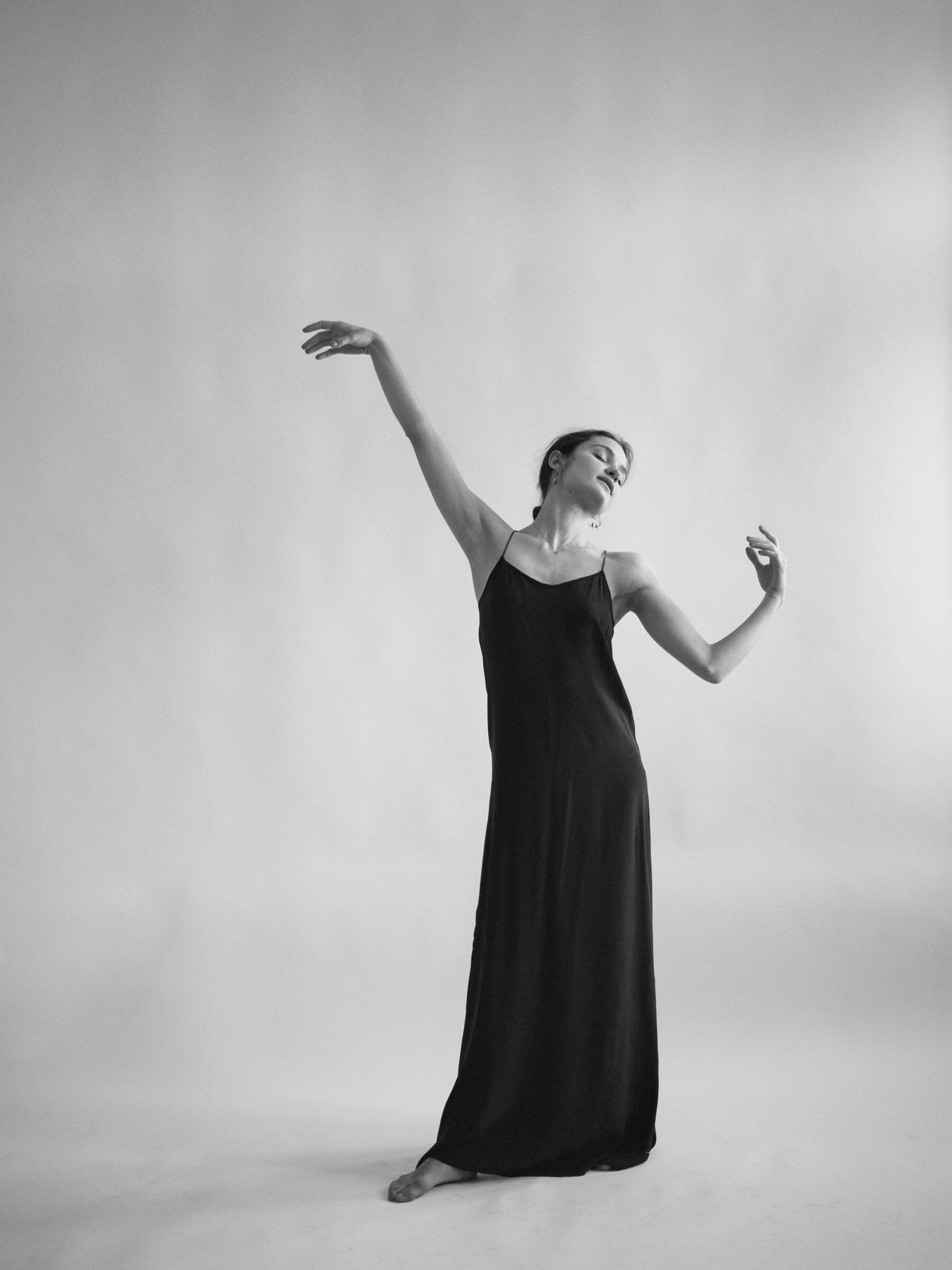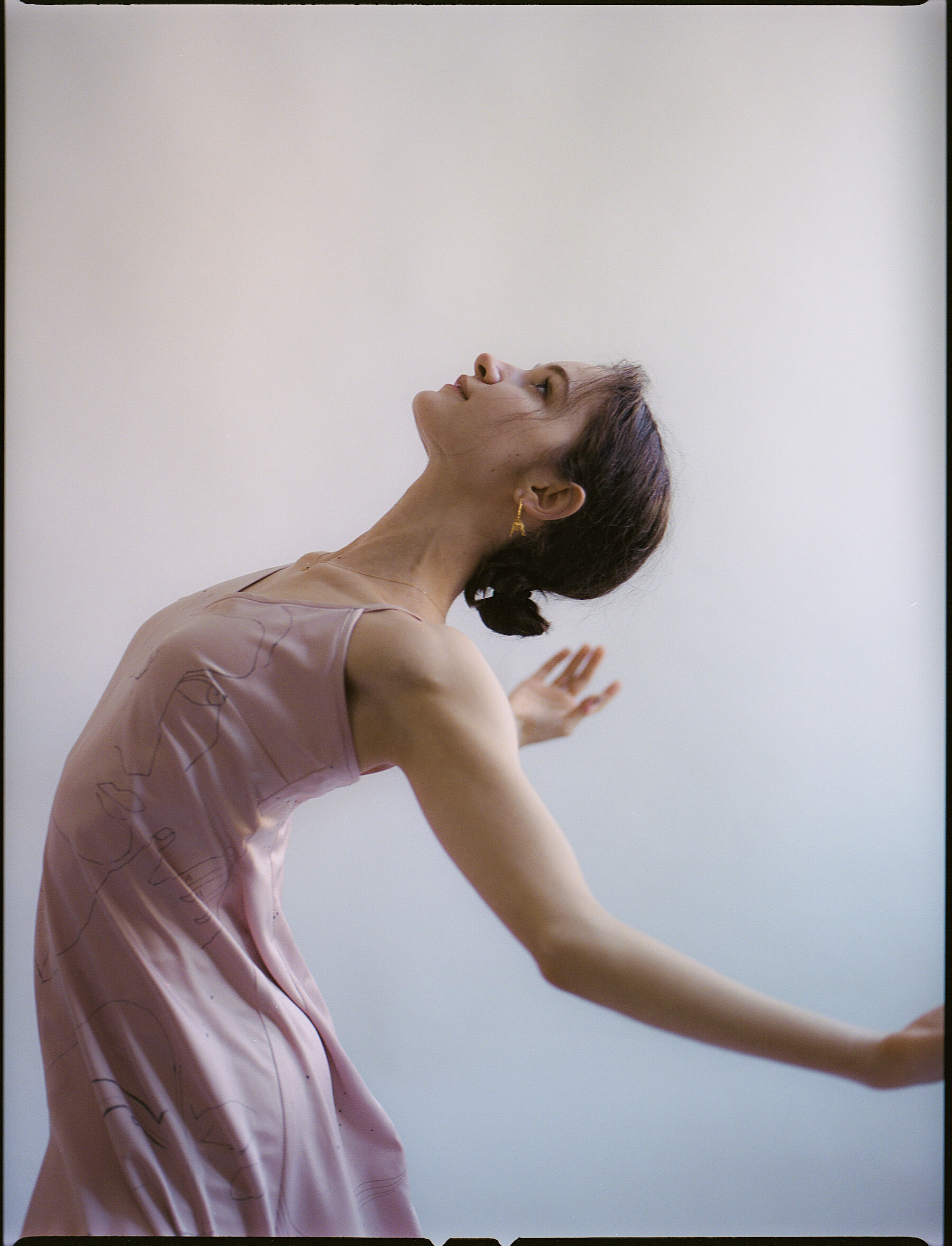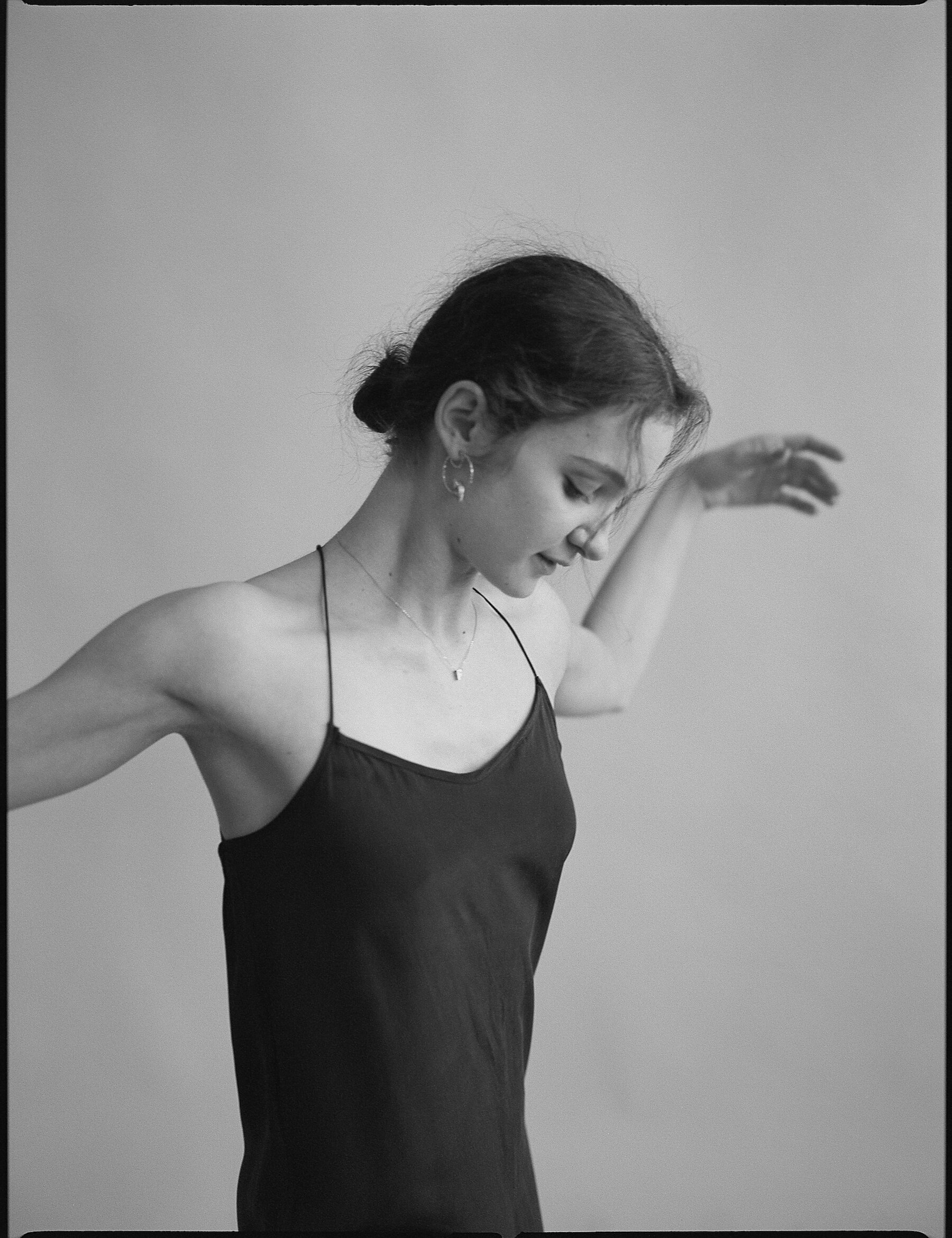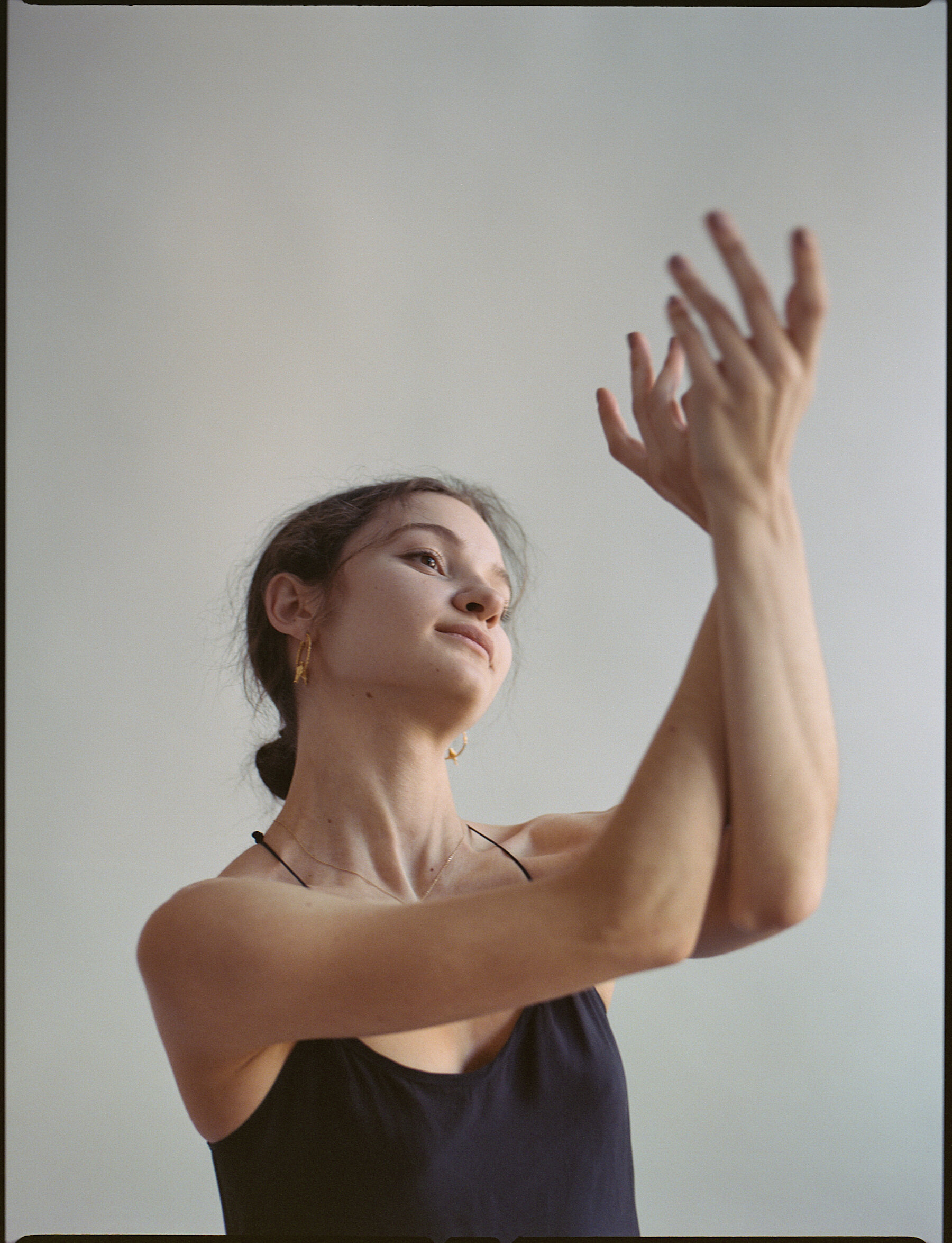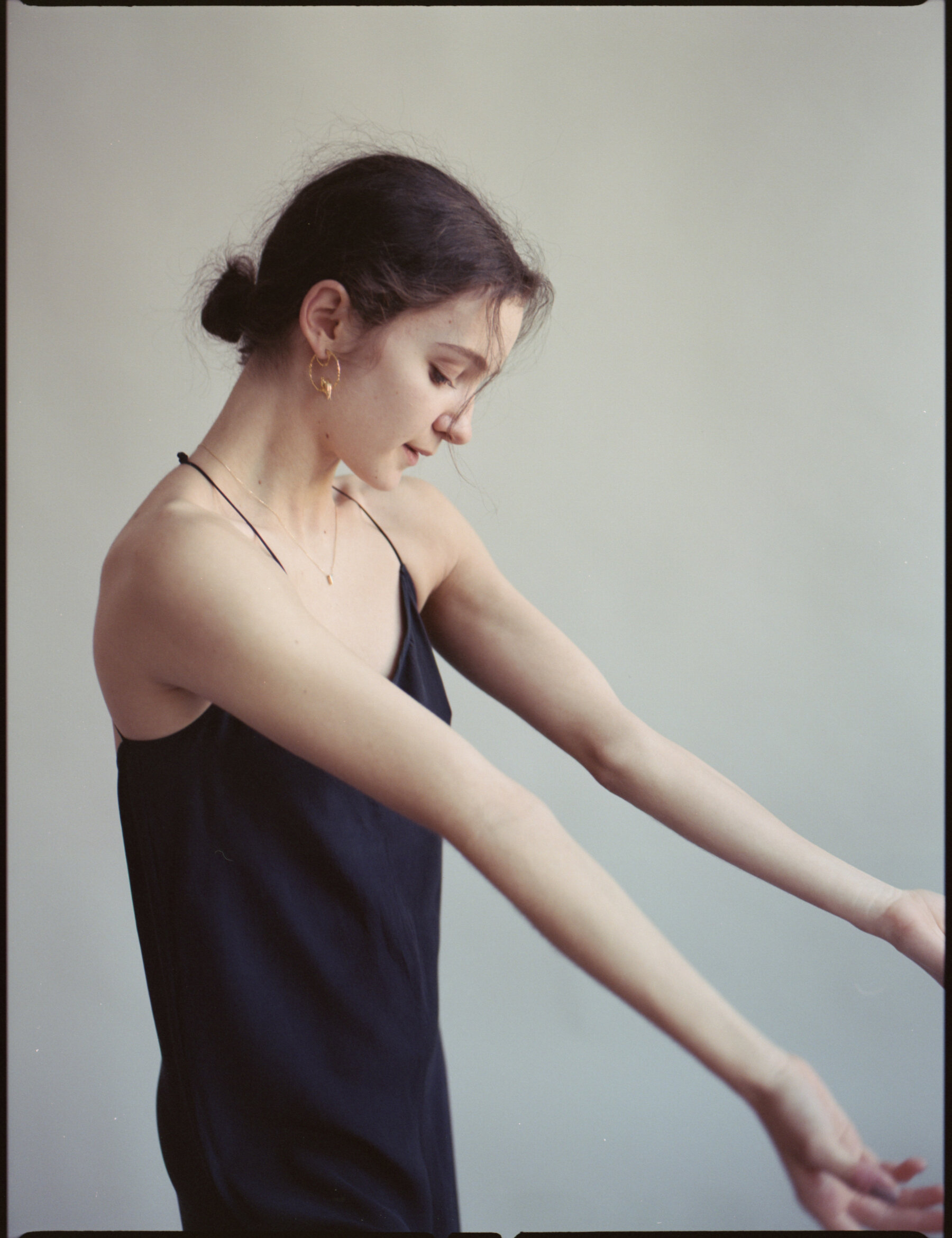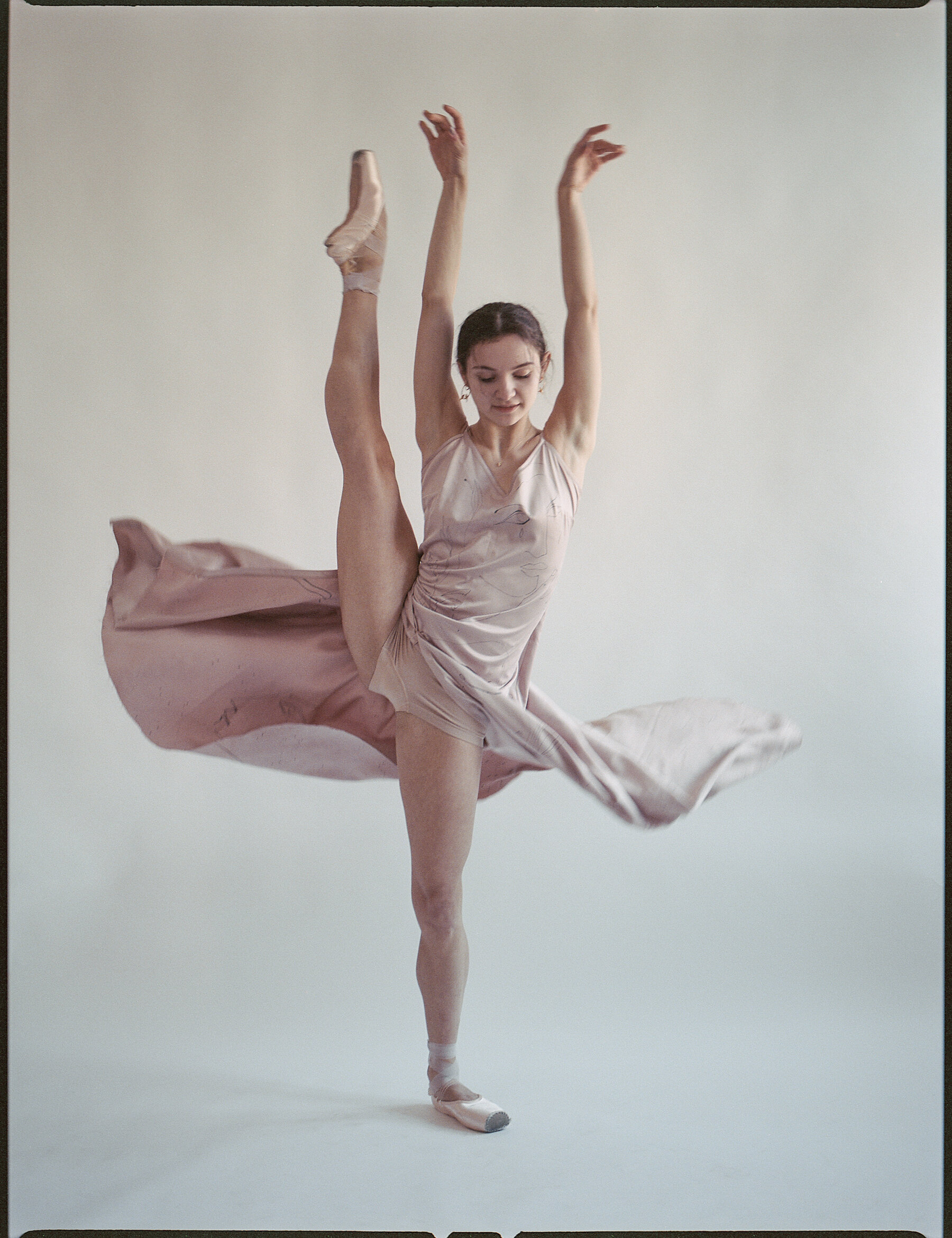FRANCESCA VELICU - WHAT MOVES HER
About our interviews: we don’t ask questions, we listen to stories.
Interview and photographs: Andrei Runcanu @andreiruncanu
Francesca Velicu is a first dancer at the English National Ballet which she joined in 2016. Born in Bucharest, Romania, she studied at the Choreography High School Floria Capsali in Bucharest and the Bolshoi Ballet Academy. She joined the Romanian National Ballet in 2015. She was awarded the 2018 Olivier Award for Outstanding Achievement in Dance for her role as the Chosen One in Pina Bauch’s Le Sacre du printemps. Some of her notable roles include Clara/Sugar Plum Fairy, Chinese and Spanish in Wayne Eagling’s Nutcracker, Odalisque in Le Corsaire, Pas de Trois in Derek Deane’s Swan Lake, Princess Florine (Bluebird) in MacMillan’s Sleeping Beauty and third principal couple in Liam Scarlett’s No Man’s Land.
Francesca Velicu links: Instagram / ENB profile
“I'm not so interested in how they move as in what moves them”, Pina Bausch once said. I was thinking of this while photographing Francesca for the interview. She was playing with her arms through the air as the soft winter light was coming in from the studio windows, making their graceful moves even more expressive. There was a sense of intimacy in that improvisation, as it felt like pure feeling being set free and not something that you are showing to someone. I wanted to know more about this connection between feeling and movement and how Francesca experiences it.
“We’re all introverts in the world of ballet”, she says. “That’s how we work, we’re always working with ourselves. And the competition is so tough that you can’t pay attention elsewhere. It’s very disciplined, our art.“ And it seems like sometimes there’s a lot of drama, too, at least in Russia. She studied at the Bolshoi Ballet Academy, one of the oldest and most prestigious schools of ballet in the world, and she remembers from her first days there, going to eat at their cafeteria, that they had no knives, as there were girls in the past who cut their wrists because of the pressure. Her Russian colleagues were crying many many times during rehearsals. And she says this with a big smile on her face like it’s something so common and natural.
After Bolshoi she came back to Romania to work at the National Opera in Bucharest in arguably one of its most creative and successful years, under the direction of Johan Kobborg. She became close with her biggest idol, Alina Cojocaru. She admires her since she was almost a baby. She gave her flowers on stage when she was 4 years old and she has her picture by her bed. It was Alina Cojocaru who suggested the English National Ballet to Francesca. She had one week to move to London or she would have missed on that opportunity. “I auditioned for ENB in Paris and the next day Tamara [Tamara Rojo, artistic director of ENB] told me that she would give me an artist contract, but I had to be in London in a week. That meant moving all my stuff, my house in one week. Buying plane tickets, finding a place to stay, all in one week. And I did. I found a place to stay at this lady that had rented a room to ballerinas in the past. I stayed in that room for two years. Her children were also doing ballet. She knows everything about ballet. Like my mother”, she laughs.
It was at the English National Ballet where she got to experience the way of dancing of Pina Bausch in Le Sacre Du Printemps, a performance that led her to an incredible accomplishment, winning the Olivier Award for Outstanding Achievement in Dance at 19. “One of the best things that we’ve done in school was going to see the movie Pina. I was in sixth grade and I thought it was very weird. We were studying ballet and this was contemporary dance. Very abstract. I was also very young. I liked the movie, but I didn’t understand a lot of things. And when they told us that we will be doing a Pina Bausch piece I was like <<No, what will I do, I’m not good at this>>. I haven’t even done a contemporary piece before, it was also my first year at the ENB. But when they came [the team from the Pina Bausch company] I realized that they were very human. They were not acting like dancers, or artists, or teachers. They were just human. Until the end of the rehearsals. And that made me open up to the experience. And dancing in soil was so natural and emotional, like when I was a child dancing on the beach. I remember when I got offstage during the opening night, I had just died onstage, I was full of soil, I was sweating, my hair was everywhere. And I started crying so hard. I couldn’t stop crying for almost half an hour. I was crying during the applause, I was crying offstage, I just couldn’t stop. This intention of giving everything you have is so strong that you cannot control your emotions anymore. And you feel that you’ve been so exposed, the audience has seen you in your purest form and there’s nothing to lose, so why not cry your heart out.”
Francesca’s parents wanted to book a trip to London to see her dance in Le Sacre Du Printemps, but they didn’t know when to come. There were four dancers rehearsing the final solo of the performance and nobody knew who was doing the opening night. That’s how the people from Pina Bausch’s company work. And they announced their choice only two days before the opening. In the end it was Francesca who was doing the solo and her parents managed to see her. “It was the first time that I thought my parents didn’t like what I did. They were so shocked that they didn’t know what to tell me. During that whole weekend that they stayed in London they said nothing. Usually with ballet it’s something happy, not something so dramatic. And I hadn’t told them anything, not to ruin the surprise. More than that, I’m also half naked on stage. And after the performance they were so quiet. We took the bus home and they weren’t saying too much. And I got upset. <<Why are you like this? Didn’t you like it?>> And only after a few days they were able to tell me that they really liked it, but the shock was too big. But this year they came to see me again in this performance and this time they knew what they were coming to and they were very happy and excited.”
Her mix of fragility and strength is overwhelming, but this burning fire stays deep inside and can’t be really seen with the naked eye. It needs dance to grow its flames. Her childhood idol, Alina, is a lead principal at the ENB. Sometimes, when Francesca goes to study or rehearse, she sees Alina in another study room and as she passes by after saying hi, she knows her idol is still leading her steps, invisibly pushing her forward.
